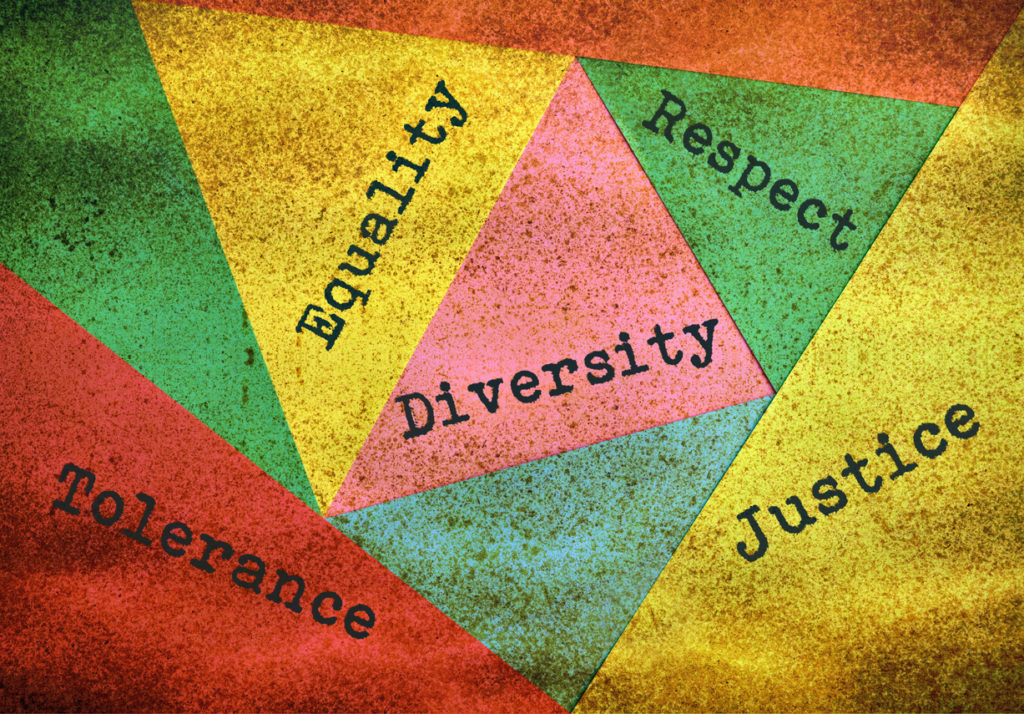Editor’s Note: Today’s post is by Jocelyn Dawson and Rebecca McLeod. Jocelyn is the Journals Marketing Manager at Duke University Press and Rebecca is a Strategic Account Manager at Copyright Clearance Center (CCC).
Recent Society for Scholarly Publishing panels in Boston and in Durham, NC, addressed equity and inclusion in scholarly publishing and best practices for organizations seeking to recruit, retain, and support people of color. The Boston panel, “Towards a Diverse Workforce in Scholarly Publishing,” featured Helene Atwan (Beacon Press); Charles Brandquist (Oxford University Press); Jesús Hernández (The MIT Press), and Gita Manaktala (The MIT Press). The panelists shared their experiences with inclusion initiatives as recruiters or as employees and reported on progress and obstacles. They considered what has worked and what has not, and what more can be done to recruit a more diverse workforce in publishing.

At the SSP regional event in Durham, Brandquist joined Lisa Ruth (North Carolina State University Libraries), Ellen Bush (University of North Carolina Press), and Cathy Rimer-Surles and Thomas Devine (both of Duke University Press) to discuss inclusive hiring practices as well as the efforts of local university press working groups to foster cultures of inclusion at their organizations. The list below compiles recommendations from these two panels on how we can go about what Helene Atwan, Director of Beacon Press, called the “essential and existential” work of addressing the role that race and privilege play in reinforcing the demographics of the scholarly publishing industry. Or, as some would have it, making sure that everyone can reach that can of tuna.
On hiring
- Reconsider the traits needed for a position. Look at your list of requirements for a job. Is prior publishing experience necessary? Several panelists mentioned a keynote address by Publisher Chris Jackson at the 2016 Association of American University Presses (AAUP) annual meeting where he discussed his own path to a publishing career, commenting that “publishing, it turns out, is a job you can learn while doing, if people are willing to help a little.” Passion, drive, and intelligence are important traits to look for — many other skills can be taught or developed. Look for candidates with transferable skills and place a high value on diverse perspectives and backgrounds that can prevent organizations from operating like echo chambers with little understanding of or appeal to a wider audience. Don’t rule out candidates from outside the industry or who seem overqualified. Atwan said “people prefer to hire people with knowledge packed up and not have to train them. Having someone question why we do something is more important than pre-mastery. This perspective is more important and can’t be taught or learned. Candidates from historically underrepresented groups offer the added benefit of a cultural lens.”
- Adding equity and inclusion language to job descriptions will encourage people from underrepresented backgrounds and perspectives to apply. Brandquist, Head of Talent Acquisition at Oxford University Press (OUP), noted that “millennials increasingly note which companies promote diversity policies and which do not.”
- Widen hiring pools. OUP actively reaches out to LGBTQ, African-American and Latinx groups to make publishing a more visible career option. One of its strategies is to participate in career fairs and events at Historically Black Colleges and Universities (HBCU). Outreach to minority groups can serve as a way to correct historical barriers and broaden hiring pools since, as Devine, Human Resources Generalist at Duke University Press, reminded attendees, “one of the major pipelines to an organization is the people already in that organization.” Rimer-Surles, Assistant Director for Contracts and Intellectual Property at Duke University Press, made the point that everyone needs to be involved in recruiting — Human Resources cannot do it all themselves. Beacon Press networks with its advisors and authors of color for potential candidates and posts and advertises in places with a more significant audience of color.
- Participate or start programs to recruit candidates from historically underrepresented groups. MIT Press energized its hiring pipeline by revamping its internship program from unpaid to paid. NC State University Libraries has a very successful and longstanding Fellows Program that focuses, in part, on bringing those from underrepresented backgrounds into academic librarianship. Manaktala, Editorial Director, discussed MIT Press’s participation in the Mellon University Press Diversity Fellowship Program, which was designed to provide mentorship, networking, and professional development opportunities for people from diverse backgrounds.
- Broaden hiring panels. Hiring panels can descend into “who knows who” or which candidate makes the hiring manager most comfortable. By including the perspective of a person from an historically underrepresented group on a hiring panel, organizations can help to challenge assumptions about candidates or identify qualities in applicants that have traditionally been undervalued.
On retention
- Establish peer support groups. Set aside both the time and budget to allow underrepresented groups and their allies to meet. The time can be structured or unstructured, can include food or not. But the key piece is to give staff the opportunity to exchange ideas and support one another. As a Mellon University Press Diversity Fellow at MIT Press in the program’s inaugural year, Hernández mentioned how helpful it was to start the program with a cohort across the four participating AAUP presses — it was helpful to bounce ideas and thoughts off of others in similar positions.
- Build a mentorship program. All employees benefit from having a mentor, whether it’s someone higher up at the organization or a peer mentor, to consult with questions about the organization or their own career paths. For those looking to widen their own networks and bring more people into the publishing fold, consider mentoring someone outside of your organization.
On building a culture of inclusion
- Make it intentional. The support of leadership is critical to creating substantial, lasting change. Brandquist warned that equity efforts can fail when there is a lack of upper management support and lack of budget to support efforts. Atwan also emphasized that efforts at inclusion don’t work unless organizations set aside time and budget to support the efforts.
- Offer educational programming. Several of the organizations represented have ongoing discussion or book groups that focus on issues of equity. Drawing on resources from its parent university, Duke University Press has offered training on implicit bias as well as information sessions with the Duke Disability Management System and the Center for Sexual and Gender Diversity. OUP has brought in its own authors to speak on diversity, connecting the work they produce with practical applications for their organization.
- Speak up. Rimer-Surles asked attendees in Durham to look more closely at who has authority in work spaces and who might feel most comfortable in meetings and to consider the historical and structural systems that perpetuate that dynamic. Ruth, Associate Head for Recruiting and Visitor Relations at NC State University Libraries, stressed the importance of speaking up when one notices inequity and being willing to have tough conversations, whether it’s questioning a flip comment about a resume or leaning into why everyone at the boardroom table looks the same. Questioning the status quo is challenging, especially when someone is early in their career or is part of an underrepresented group — employees in positions of authority or who are part of the majority culture have a responsibility to speak up where others may not be comfortable doing so.
- Analyze results. Brandquist emphasized how important it is for human resource departments to keep an eye out for bias in hiring decisions. Looking at hiring decisions can also help organizations measure the success of the time and financial investment they’ve put into equity and inclusion efforts, though, as one speaker noted, consideration of the bottom line should not come at the expense of breaking down historical barriers to economic opportunities for people from underrepresented groups. Another way to measure progress is to directly consult with employees; the annual review process at Beacon Press provides an opportunity to comment on the culture of race and class in the workplace and suggest improvements.
Multiple panelists expressed how important it is to keep moving forward and commit to the long haul with equity and inclusion work. Bush, Digital Initiatives and Database Director at UNC Press, emphasized that building a culture of inclusion is not a project with a start and end date or a problem to be solved—it’s hard, continuous work. By leaning into discomfort, by speaking up about inequitable practices, by reaching out beyond traditional networks, and by investing resources into inclusion efforts, organizations can provide more equitable employment opportunities and recruit and retain top candidates from all backgrounds.
Discussion
4 Thoughts on "Guest Post — “Essential and Existential”: The Work of Equity and Inclusion in Scholarly Publishing"
Scholarly Kitchen should lead by example and invite publication experts and thought leaders from various geographies to contribute articles. Sharing the perspective of someone different than yourself is the first step in establishing an open community and eradicating bias.
Absolutely! We welcome guest posts and are actively recruiting authors globally.
That’s great! Is there a process in place to contribute a guest post or be considered to author an article? I don’t believe that many experts from the East know how to approach SK. We could help spread the word and ask our experts and thought leaders to present perspectives on topics that SK would like to publish.
All can contact us at scholarlykitchen@sspnet.org
Usually the process is that we try to connect the guest author with one of our “Chefs” who can help shepherd in the post.



